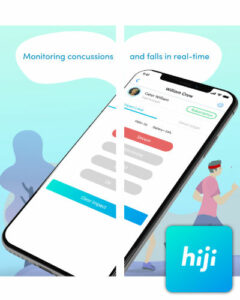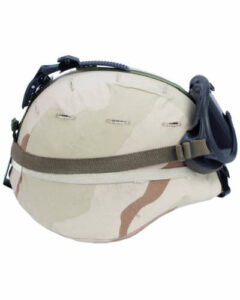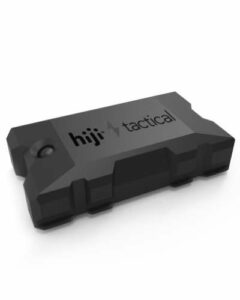Identifying TBIs with Hiji® Tactical.

Reliable Monitoring
Measures rapid changes in G-forces that impact the brain.

Comfortable Wear
Improved wearer compliance thanks to ergonomic design.

Accurate Data
No confusion or mistrust caused by false positives.
Why It’s Needed
TBIs remain significantly under diagnosed in the military.
Each year, thousands of military personnel experience TBIs. While some occur during combat and training, 83.1% of all military TBIs occur in non-deployment settings.
Veterans who experienced mild TBIs show double the risk of dementia later in life.
The number of reported TBIs in the military continues to rise.
TBIs are linked to neurodegenerative diseases and psychiatric disorders. The rising numbers of reported incidences in the military is an urgent healthcare concern not only at present, but for decades to come.
Early diagnosis of TBIs in the military is crucial for preventing further, permanent injury.
The Possibilities
Diagnosing TBIs early on using sensor-derived, algorithm-based data.
Hiji® Tactical employs a combination of methods to produce the most accurate, efficient monitoring of TBIs.
The Three B’s
Bands and Wearable Tech
Detect changes in acceleration experienced by the head via embedded sensors
Behavioral
Recognize potential brain trauma via assessing changes in movement and coordination.
Biomarkers
Measure changes in specific proteins upregulated after brain injuries.
On their own, each of these core monitoring methods has shortfalls. Together, as Hiji®Tactical, they fill in the blind spots to create a holistic picture of brain health.
Our troops protect us. It’s time to return the favor.
Stop the increased risk of long-term degenerative conditions like dementia and CTE (chronic traumatic encephalopathy) from untreated TBIs. Start monitoring and diagnosing Traumatic Brain Injuries in military personnel with Hiji®Tactical.
Learn more about Hiji®Tactical
Drop your email and we will keep you in the loop on Hiji®Tactical‘s mission to monitor TBI with our service men and women.



